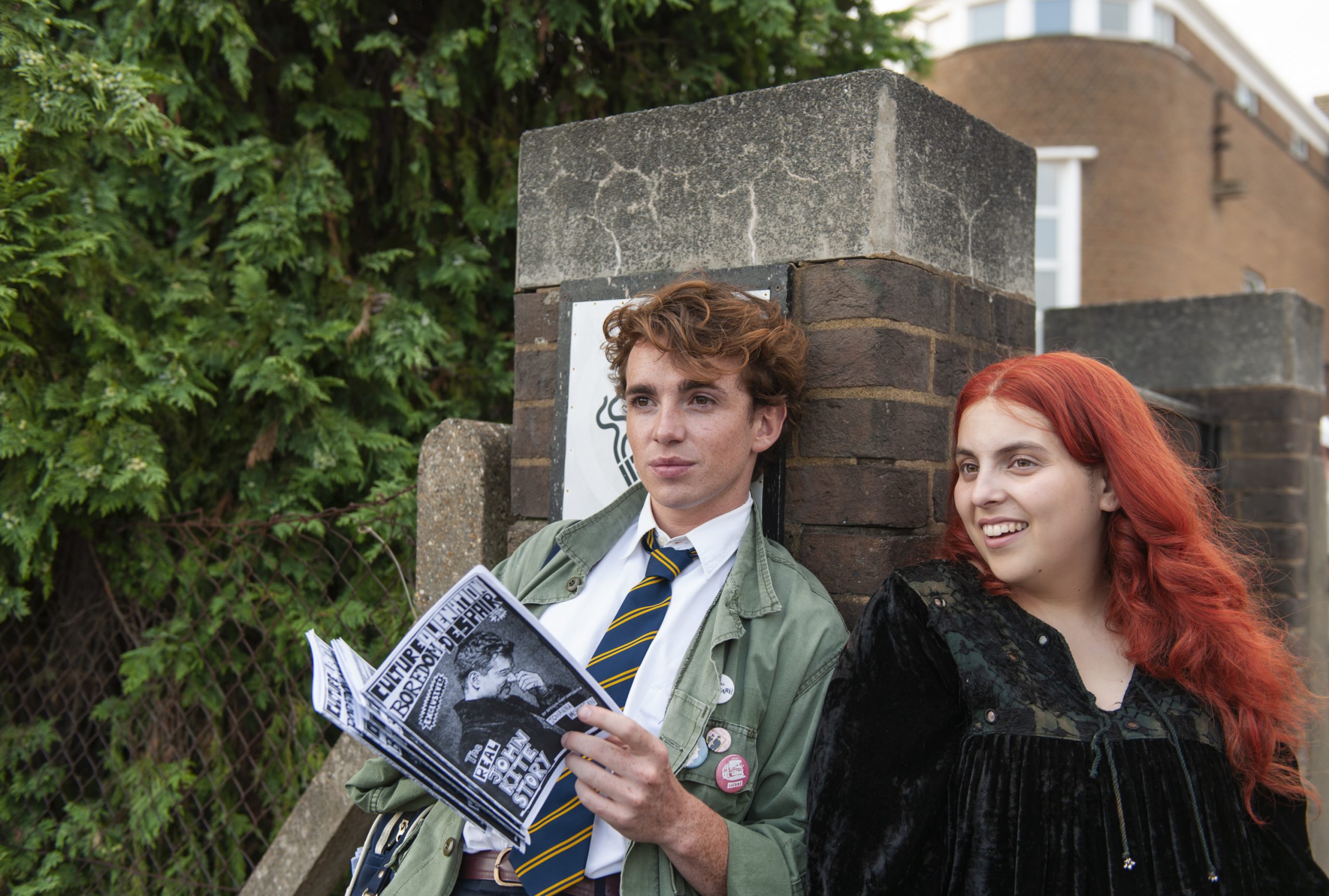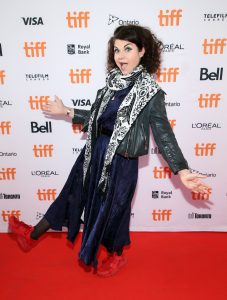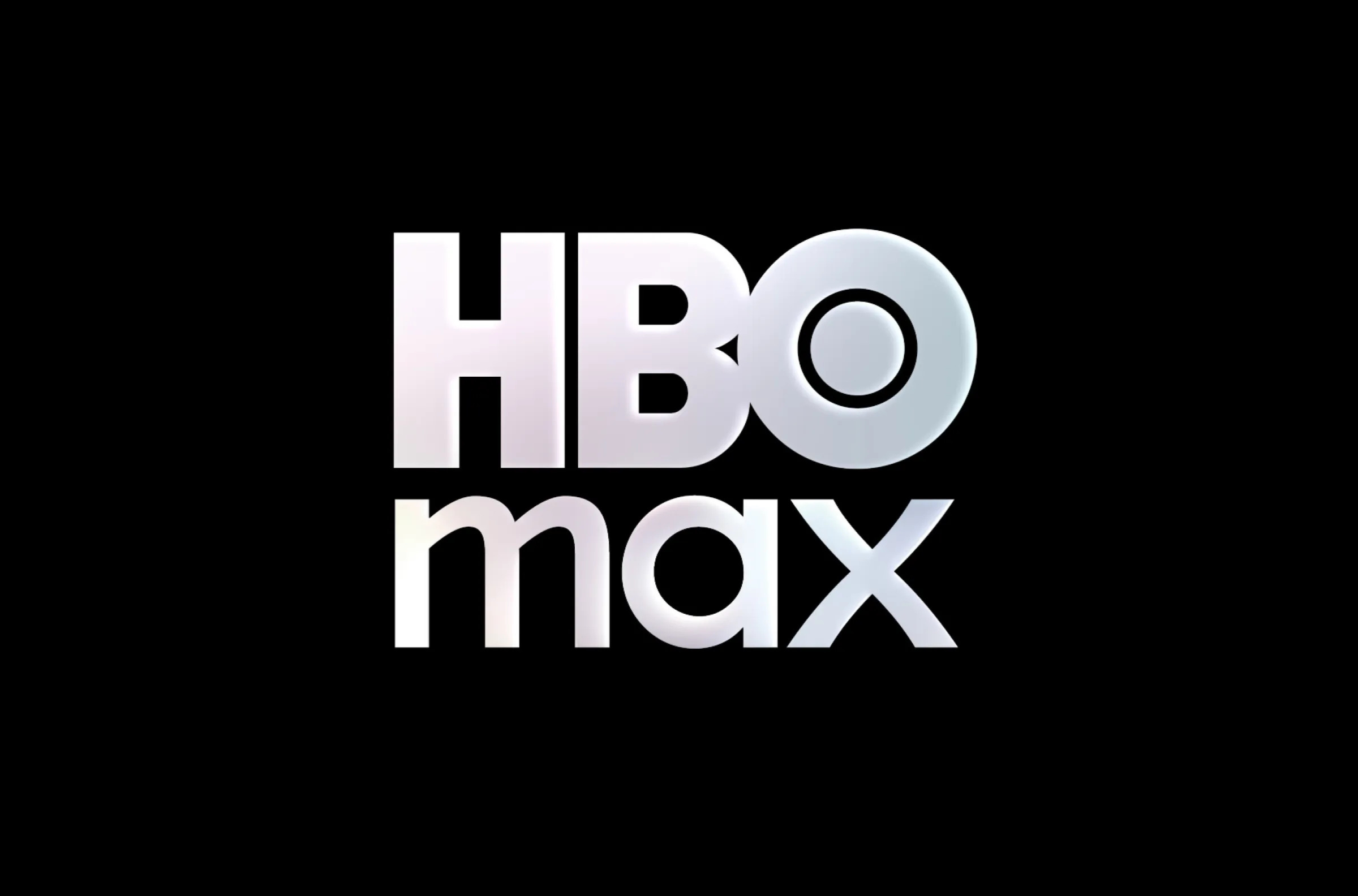
Caitlin Moran sat down with Solzy at the Movies about How to Build a Girl during the 2019 Toronto International Film Festival.

How excited were you upon learning the film would premiere at TIFF?
Caitlin Moran: I’ve never been to premiere of my own film before. I’d always had a plan that when I do go to my premiere and first go on a red carpet, I wouldn’t wear a gown but I would dress like one of the Ghostbusters. I think that’d be very important for women to see someone who wasn’t in a dress and was dressed up as a Ghostbuster. Then it was explained to me that dressing up like a character from another movie would probably be quite confusing in terms of promotion so I put the fucking dress on. The first chance I get where that would be understood, I would do it. Maybe I just need to make a Ghostbusters movie and I could finally live out my red carpet fantasy.
What thoughts do you have on the film’s reception at the premiere?
Caitlin Moran: I don’t know how sweary I can be but we were shaking like shitting dogs because I’m very much about the management of expectation. In my head I had gone, It’s going to be fucking disaster but you tried your best. You’re good people, you literally weren’t Nazis—you just tried to make a funny film about an amazing girl. We got a standing ovation and the cheering just got louder and louder and louder. There were people down the front crying. They were standing there with their microphones—people crying and cheering. That was the one thing I hadn’t expected. We were all just looking at each other on the verge of a heart attack. I just looked across to the cast and crew just going, I don’t know if we can emotionally deal with this. This is incredible. It was one of the most emotionally intense experiences of my life.
Both Debra Hayward and Alison Owen have produced a number of films over the years. How did it feel when you learned they wanted to turn your book into a film?
Caitlin Moran: Well, that was my dream. No shade on men but they have a different way of working and I find it very difficult. Deborah and Allison are the women in the UK for making films—their childhoods are absolutely impeccable and they just get shit done. They are absolutely incredible. They fought all the way—at one point, as far as I remember, Allison was in some kind of meeting, wasn’t getting her way, and threatened to undo her blouse and show her bra. She wasn’t allowed to do what she wanted to do, which isn’t exactly the right way to conduct your business. So no, I mean, they were the best. They fought for everything. They were absolutely incredible. I’ve never written a script before. They never treated me like a mad idiot that didn’t even know how—well, I didn’t know how to use the software on the first day to write a script. They could have pointed at me and chanted “Are you making a film” but they were like, “It’s called final draft. Everyone hates it. This is how you write a script.” I would work with them again in a heartbeat because they were incredible.
Did you make any substantial changes in adapting your novel for the screen or does it mostly stay true to the book?
Caitlin Moran: Yeah, it’s great—adapting your own book because it means that you get to see all the bits in the books. All of my books are written so quickly. The book was written in five months. I could see all the bits that were terrible and just very quietly push them into the bin. Then I could see all the bits where I’ve got some good ideas and go well, let’s make those bigger. It just allows you to rewrite your history in a really brilliant way and just kind of you get a second chance of making something.
We did massive rewrites after we got Beanie because I knew that I could write for her and she can do everything. It’s been incredible watching her. I went to the premiere of Booksmart in London a couple months ago. She’s not an actor now. She’s got to that stage in our careers quicker than I can remember anybody where she’s become a thing. When she walks into a room, girls freak out. Because your eyes—if you’re a young girl—aren’t used to seeing someone like her exuding the kind of power and the joy in the sunshine that she has. Just by existing, she’s changing the world. We couldn’t have made the film without her because there isn’t another actor that could play a big 16 year old working class girl who can go from complete sunshine to a massive dick and then back to sunshine again—wearing a bikini made up of a beanbag and having three different kinds of sex, which is all the sex you can have.
Thankfully, it takes so long to make a film. It’s roughly about 6,000 years between sort of signing the contracts and actually seeing it. Beanie had time to be conceived, born, become a Broadway actress, get all this experience in movies, and then finally be in our film. Without her, we would genuinely have been having to talk to Dame Judi Dench, whether we could do a CGI thing like Polar Express and just use her eyes. Or make that call to Andy Serkis, “Could you be come and be a CGI teenager? It’s kinda like Gollum, slightly Kong—like Lady Kong.”
That’s hysterial! I’m trying to imagine Judi Dench in the role although with The Irishman de-aging all these 70-year-olds, it could happen.
Caitlin Moran: The tech is there, isn’t it? Someone was saying that there’s quite a few contracts now that says that they are allowed to capture your image and do whatever they want with it and movies and stuff. Like the Tupac tour, I guess, but for Hollywood so that will be interesting. I’d reckon Judi would add a good poker to it but Beanie is the best.
Beanie Feldstein broke out in Lady Bird and crushed it in Booksmart. How does a young Jewish woman from the west coast end up playing Joanna/Dolly?
Caitlin Moran: I know! When we looked at everybody, I mean, we were very keen—we had open auditions. We were incredibly interested in finding new talent. If you’re a big girl/actress/young, you probably wouldn’t have ever been offered a lead role before and we were like, G-d, if there’s anyone out there that we can give this to, that’s fine. We had open auditions and went through this massive process. Deborah Hayward saw an early screening of Booksmart at a festival and just rang us up and went, “We found her. This is the girl that can do it.”
Beanie was worried about the accent and we worried about the accent. As she said on the first Skype meeting, whoever you cast in it, they’re going to have to learn to Wolverhampton accent. It’s a difficult thing. Most British actors can’t do it. There’s a TV show called Peaky Blinders—Cillian Murphy is in it and loads of other people—set in the Midlands. Ninety percent of the cast can’t do the accent and they’re all British. It’s a very, very difficult accent. Any actor that we would cast would have had problems with it, but she was just like, “It’s going to be difficult and hard work for anybody—I will do it.” She came with her big folders, she practiced her values. She had worked in a shop in Wolverhampton for two weeks to really immerse herself proper method-style. She crushed it. She works so hard.
It’s my understanding that you have an interesting story about the day that Emma Thompson stopped by the set?
Caitlin Moran: Emma Thompson Day as it was called on the on the call sheet—the cast and crew would usually be around about maybe 150 on set. On that day, 250 people turned up and were all standing around like meerkats. When she turned up, everyone just kind of went, “She’s here.” It was like G-d had come into the room—she looks like David Bowie at the moment. She’s so fucking elegant and she bought a box of chocolates literally the size of this table and just went around giving them to everybody. You don’t need to do that, you’re Dame Emma Thompson. We all just spent all day just like trying to touch her. Everyone would take turns to brush past her and kind of touch her and be like “I touched Thompson and got some of the magic.”



